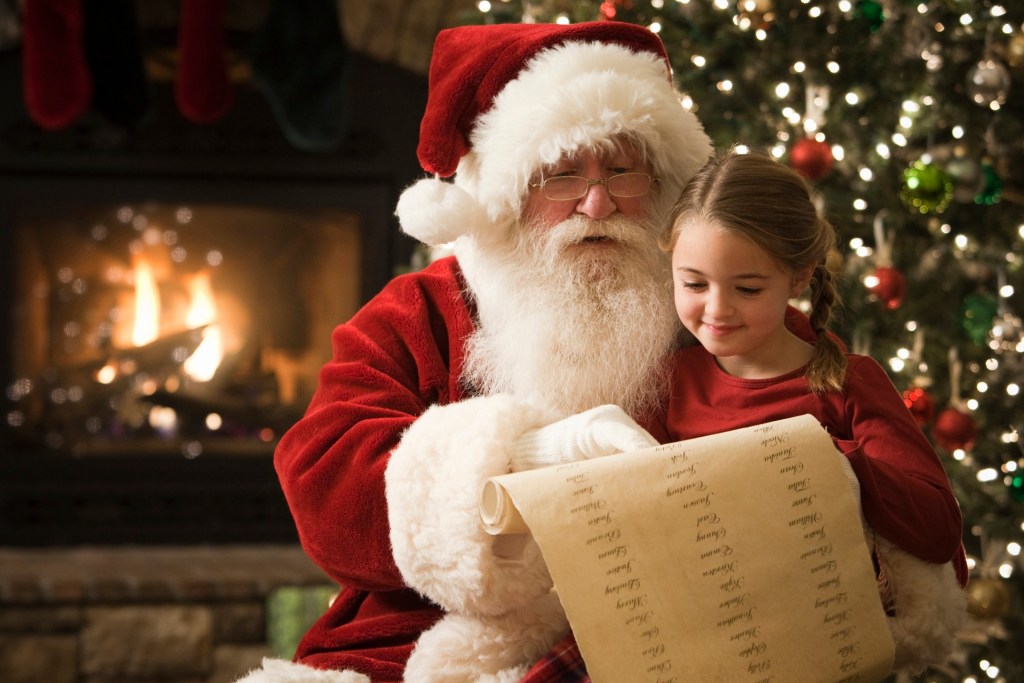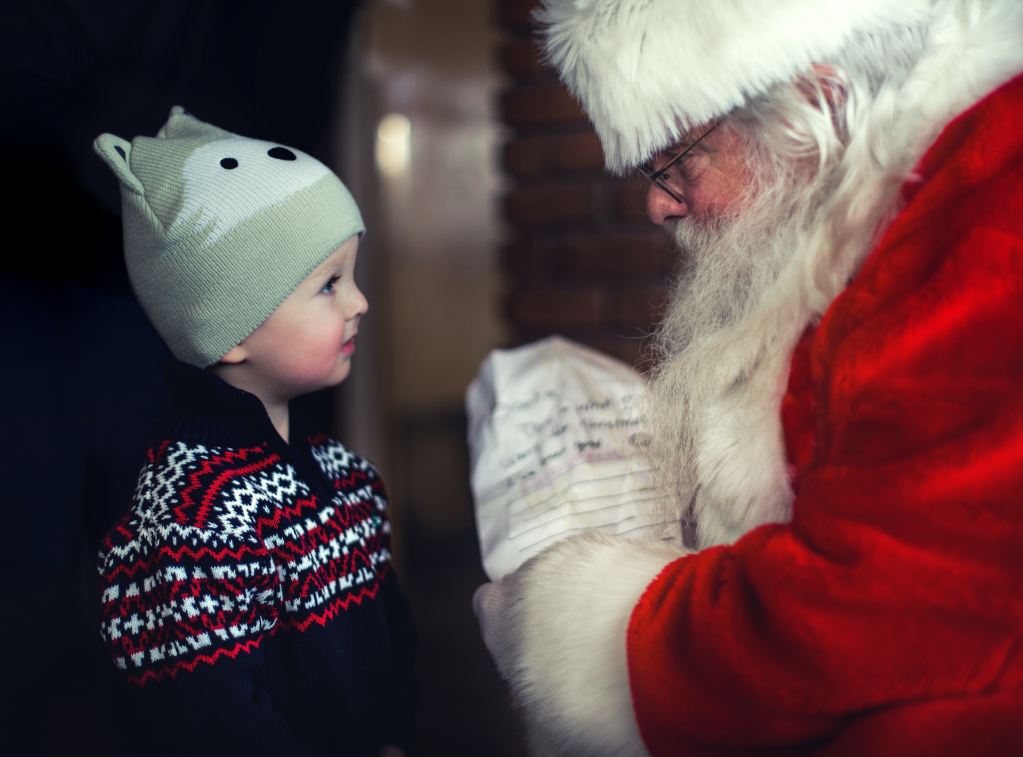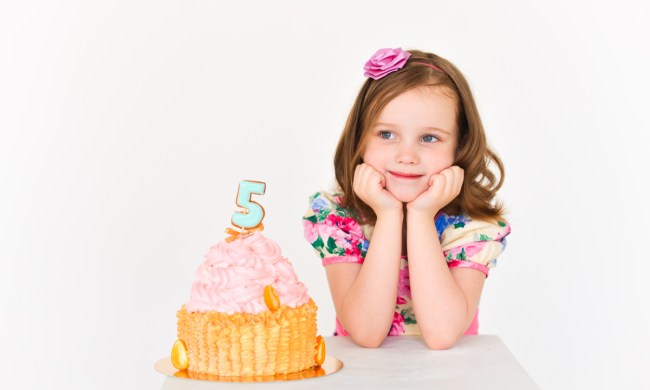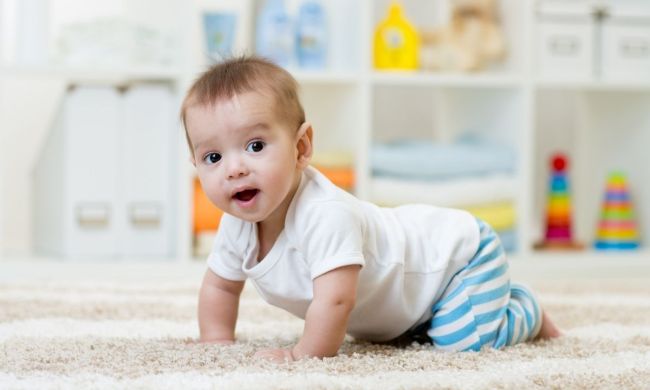
Kids believing in Santa is one of the magical times of parenthood and is a special time of childhood. Sadly, there comes a point when they outgrow it. If you grew up believing in Santa, you have happy memories of waiting for Saint Nick and you remember the moment you found out he wasn’t real. For some, he drifts away, for others it is a formative moment to discover the big secret.
Guarding the secret until then is stressful, but if you know what age to expect the jig will be up, that may help. Will your kids hear it at school, from an older sibling, a cousin, on TV, or online? Should you safeguard against it or let it happen? We’ll go over at what age kids stop believing in Santa, why they stop, and how to handle it.

What age kids stop believing in Santa
Multiple surveys and studies from the United States and around the Western world show the typical age children stop believing in Santa Claus is eight years old. We know, we want them to believe until they are out of high school.
House Method surveyed over 4,500 American adults in November 2019 and found the average age they stopped believing in Santa Claus was 8.4 years old. Zero to 10% of respondents never believed in Santa, depending on the state they were from. They also found the average age varied by state, with the average age in Mississippi being 10.2 years old and 7.4 years old in Oregon.
This trend tracks outside the United States as well. Psychologist Chris Boyle of the University of Exeter in the United Kingdom received responses from 1,200 people from around the world and found the average children stopped believing in Santa was also age eight.
These numbers seem to be holding steady, despite the availability of information online. A study published in 1978 in the American Journal of Orthopsychiatry found the number of children believing in Jolly Saint Nick sharply dropped at 8 years old. At age 4, 85% believed, at 6 years old, 65% still believed, and at 8, only 25% still believed.

Why do kids stop believing in Santa?
There are common pitfalls that break a child’s belief in Santa. Kids are smart, and parents unknowingly do things to raise suspicion. If you’re trying to extend the time your children participate in the idea of the jolly visitor from the North Pole or make sure they don’t find out at too early of an age, there are some common ways the discovery is made.
Parent oopsies that give it away
- Kids recognize parents’ handwriting on gift tags.
- Children recognize wrapping paper used for other presents or seen at home.
- Parents are caught setting up presents or eating Santa’s cookies on Christmas Eve.
- Kids find presents at home (hidden in the closet, delivered to the door, being carried from the car) before Christmas.
- Santa at the mall or otherwise in public, not acting jolly, not knowing a detail, not looking the same as another Santa they met before.
- Google searches. That darn internet.
- Seeing online ads for requested gifts.
- Questioning the feasibility of one person making a journey around the world in one night with so much to deliver, reindeer flying, or other magic.
- An older child telling them Santa isn’t real.
- Seeing an adult on the news, a movie, or a TV show talk about how Santa isn’t real.

How to handle kids finding out about Santa
The same British study mentioned above found a third of those surveyed reported feeling upset when they found out Santa isn’t real. On the bright side, that means you have a two out of three chance your child will at least not even remember feeling upset at the news. That survey also found two-thirds of children said they continued to play along and pretend Santa was real even after they knew, which is great news for those with sibling sets trying to get older kids to keep the secret for younger ones.
A viral Facebook post from 2016 caught on as a popular way of reframing the news not as a lie, broken dream, loss of trust, or destruction of innocence, but instead, as a rite of passage of growing up, joining a cool club, and being part of spreading the Christmas spirit. The mom of this now-famous post writes when a child is six or seven and becoming suspicious, sit them down and tell them you’ve noticed them growing up and they seem ready to become a Santa Claus. Kids who are ready are let into the know and they help deliver the magic of Santa to the younger children. Parents could task these children with choosing a person and delivering a present without getting caught.

Rip the Band-Aid or keep it going
Parents are forced with a choice, and it’s not a fun one. Do you wait for your child to find out from a kid in school Santa isn’t really real, or do you have the talk with them at a certain age? When does a parent decide when to take the magic out of Christmas?
While your kid will be sad to learn Santa is more of a feeling than a person, having the conversation should be child-led. As soon as your child starts giving you the third degree about Santa, magic, elves, and flying reindeer, it’s time. But don’t rush it. If you have more than one child, that conversation might happen at completely different ages.
However your child finds out
- Keep the focus on the family traditions for the holiday.
- Don’t lie to your child when they ask you about Santa.
- Validate how they feel about finding out and allow them the space to grieve.
No matter when or how your child transitions out of the phase, the years of wonder at the magic and gifts will stay with them. Only 15% of respondents to the previously mentioned British study said they felt betrayed by their parents when they found out the truth, and if you use the “becoming a Santa” strategy, it could be an even smoother transition.
Like the tooth fairy and the Easter Bunny, your child believing in a little bit of magic should be a fun part of their childhood you get to experience with them. Whether your child is four or nine, if your kids want to believe in Santa, let them believe. Let them be kids for as long as they want to be.



